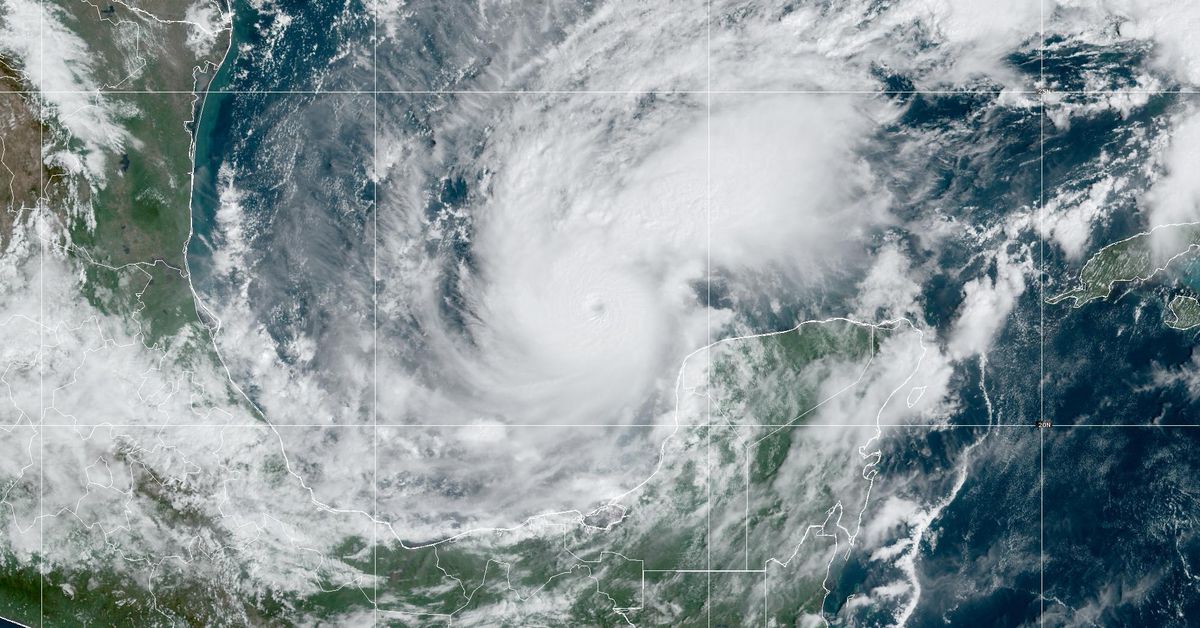
One of the most rapidly intensifying hurricanes on record is approaching Florida
Milton’s Superstorm in Fla., declared a State of Emergency, and warned to stay inside during a large evacuation zone for the nation since Irma
The Air Force Reserve Hurricane Hunters aircraft projected that the sustained winds would be between 160 and 180 miles per hour on Monday. It’s in the strongest category of storms, and according to the Saffir-Simpson scale it’s Category 5. The NHC had just put out their next update and wind speeds had surged to 175mph. The rate at which Milton strengthened from a Category 1 to a Category 5 storm is second-fastest on record for the Atlantic.
The storm is about 165 miles west-northwest of Progreso, Mexico, and about 745 miles west-southwest of Tampa. The coast of the Yucatan Peninsula is under a hurricane warning, while hurricane watches, storm surge watches and tropical storm watches and warnings are in effect for parts of the west coast of the Florida Peninsula.
The NHC says most models agree that Milton will cross the Florida Peninsula, though people “should not focus on the exact track” because models still disagree about the exact location and timing of landfall.
The state of Florida is again on high alert for another storm less than two weeks after Hurricane Helene destroyed swaths of the southeastern U.S.
There is a risk of life threatening storm surge and damaging winds for some parts of Florida’s west coast in the middle of the week. Forecasters say it could raise water levels to as high as 8 to 12 feet in coastal areas of Florida, including Tampa Bay.
The NHC says residents should follow any advice from local officials and leave that area.
Florida’s Gov. Ron DeSantis has declared a state of emergency in more than 50 of the state’s 67 counties.
“Do not get wedded to the cone,” he tweeted on Sunday. “Floridians should prepare now for potential impacts, even if you live outside of the forecast cone. We recommend that you follow all the warnings from your local officials.
Florida Emergency Management Director Kevin Guthrie said on Sunday that the state is preparing “for the largest evacuation that we have seen most likely since 2017 Hurricane Irma,” when nearly 6.8 million Floridians left their homes, resulting in statewide traffic jams.
But he also cautioned inland residents who don’t live in an evacuation zone or depend on electricity for medical needs that “it may be better for you to just stay in place.”
In a number of areas, including low-lying areas, mobile homes and RV areas, as well as healthcare facilities within certain zones, residents have been ordered to leave.
Many of them are still recovering from the storm and should take into account their reserves of water, food, and pet food. Do they need to buy fresh batteries? Have they restocked their supply kits to last each family member up to seven days?
It notes that public school districts in many counties will be closed from Monday through at least Wednesday and that Florida Gulf Coast University — near Fort Myers — will close its campus Tuesday and Wednesday, after shifting to remote operations.
But it is expected to exit into the Atlantic Ocean, sparing many of the southeastern states that were hit hardest by Helene, including Georgia and the Carolinas.
More than 220 people were killed by Helene, one of the deadliest hurricanes to hit the mainland U.S. since Katrina in 2005. The Associated Press reports that about half of the victims were in North Carolina, where historic flooding destroyed entire communities.
Climate change has made it more easy for hurricanes to strengthen quickly and bring even more wind and rain.
And this is officially the first time three simultaneous hurricanes have been recorded in the Atlantic Ocean after September, according to storm researcher Philip Klotzbach. Hurricanes Kirk and Leslie are also in the process of being made.
It is close to three times the threshold that is used. The climate scientist at the Pacific Northwest National Laboratory says this is definitely off the charts. The NHC says that only Hurricane Wilma and Hurricane Felix have strengthened more rapidly than that.
